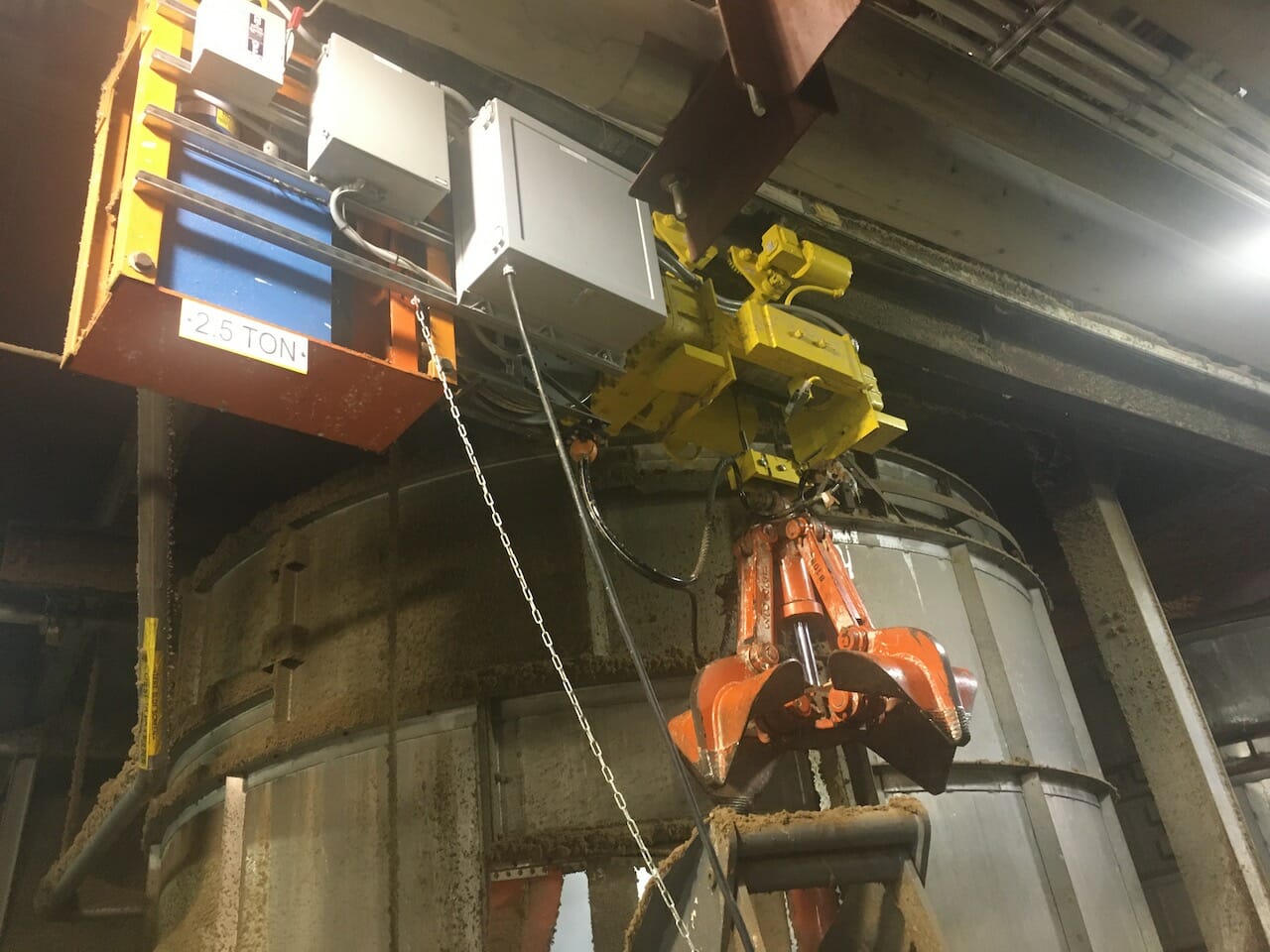New Orleans, Louisiana-based Hoist & Crane Service Group (HCSG), a leading, national provider for hoist and crane inspections, preventative maintenance, and repairs, partnered with ACCO Material Handling Solutions LLC, a manufacturer of material handling products, including cranes and hoists, to provide a custom 2.5-ton heavy duty wire rope hoist solution to remove waste from wells at a pulp and paper recycling facility.The Wright Work-Rated electric wire rope hoist is installed on a 42.9 ft.-long beam with a 4 ft. radius curve. It is pendant controlled and supplied with the grapple.
The overhead lifting solution, which replaced a previous system that utilized the same monorail, also boasts a customized spreader bar that connects two lengths of stainless-steel wire rope, while the grapple hooks to a center pin.
Typically, the hoist drum payout is offset from the center of the monorail, where the wire ropes go down to a load block and return up to the dead end on the hoist frame that is located on the opposite side of the monorail, thus, keeping the load directly under the center of the monorail in a balanced condition. With this dead end now eliminated, the payout of the drum needed to be shifted so that it is directly under the center of the monorail, maintaining the crucial balance.
The hoist, with 36 ft. of lift, positions the grapple as required to remove debris from three wells that have the same diameter but varying depths. It removes waste product and discards it multiple times per shift in line with operations.
Bradley Ross, zone operations manager at HCSG, said: “Very few hoists can actually carry out this type of work and ACCO built it as a tailored product for this particular application. The issue that can arise is that pulp and paper accumulates on moving parts of the grapple, as well as any parts that are in the tank. This could include the load block of the hoist, which regularly utilizes wire rope sheaves that rotate as the hook is raised and lowered.
“The pulp and paper collecting on the sheaves and wire rope will jam in the load block of the hoist, potentially causing damage to the moving components. If enough debris is collected, the load block could fail.”
Clay Soverns, service manager at HCSG, said: “The solution was to design a hoist where the load block had no moving components and as few debris collection points as possible. ACCO achieved this by modifying its standard reeved hoist design into a winch with only a load bar for the grapple at the end of the wire ropes. While debris will still collect on the load bar, there are no moving parts for it to create a jamming scenario.”
Eric Weber, product manager at ACCO, explained that the ends of the wire ropes had to be fitted with attachments for connection of the spreader bar to the grapple. HCSG utilized swaged clevis fittings, facilitating easy installation and removal of the grapple from the hoist when needed for maintenance.
Weber added: “With the wire ropes coming off of the drum and not returning to the hoist to share the load with a dead end, we had to reconfigure the unit to accommodate the entire load solely on the drum.”
The 2.5-ton capacity ACCO hoist provides plenty of leeway with even the heaviest of grapple loads only reaching approx. 1.25 tons.







